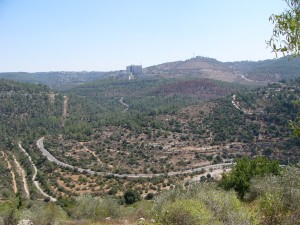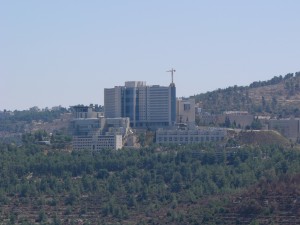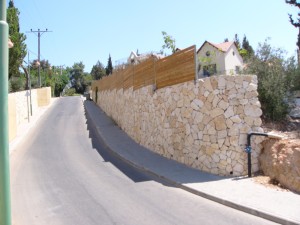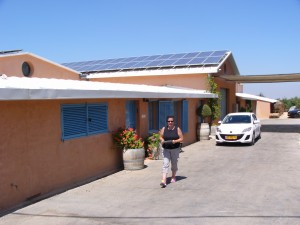September 16 (erev Rosh Hashanah) We went to Yahuda Market this morning to shop for Rosh Hashanah dinner. (Rosh Hashanah is the Jewish New Year and everything pretty much shuts down starting around 3pm on Sunday until after dark on Tuesday.) It’s hard to explain how loud, crowded, chaotic, colorful and odiferous Yahuda Market is. It’s an exhilarating assault on the senses. As we entered the market we saw a visually impaired person with a guide dog, a black lab. If you look carefully at the photo below you can see the dog and handler (in the red shirt) crossing the train tracks (click on the link for a larger image). It’s difficult enough navigating the crowds and narrow alleyways of the shuk – let alone doing it with a dog, and lacking good or any vision. The fellow had just finished a successful shopping trip in the very crowded market with the dog at his side. Notice the full basket of items. Given the tumult of the area and on this day in particular, this handler and dog are really amazing.
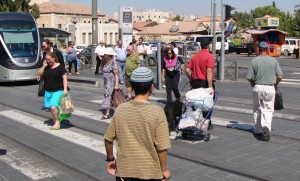 The man in the red shirt has a guide dog on his left side
The man in the red shirt has a guide dog on his left side
We’ve seen three visually impaired/blind people in the three weeks we’ve lived here; two of them with guide dogs. Not sure if there are more blind people in Israel than in other places? A result of the wars and suicide bombings? Or maybe we’re just more aware because of our work with Guiding Eyes, and just seeing more such folks because we are living in the city and getting around by mass transportation?

